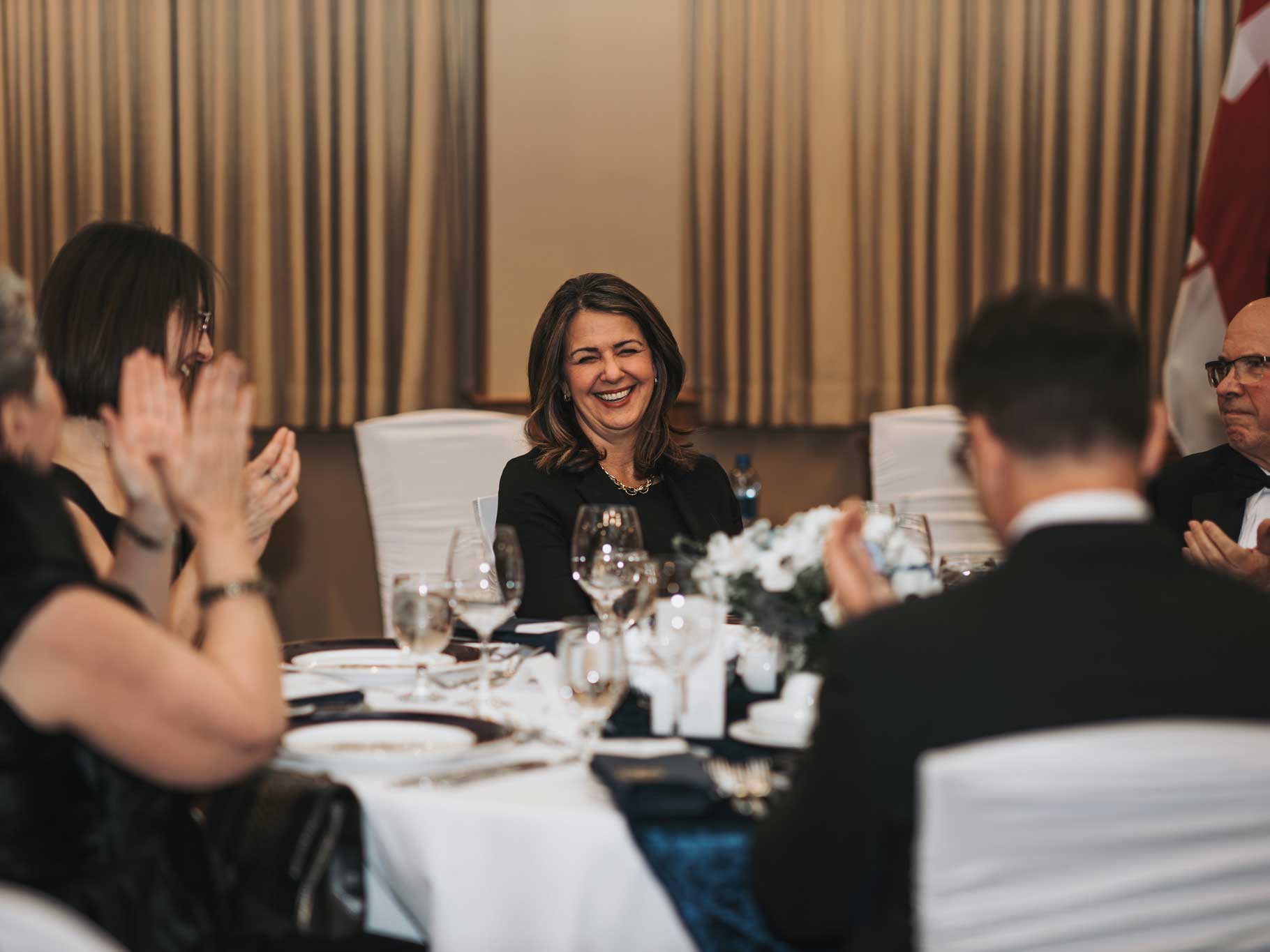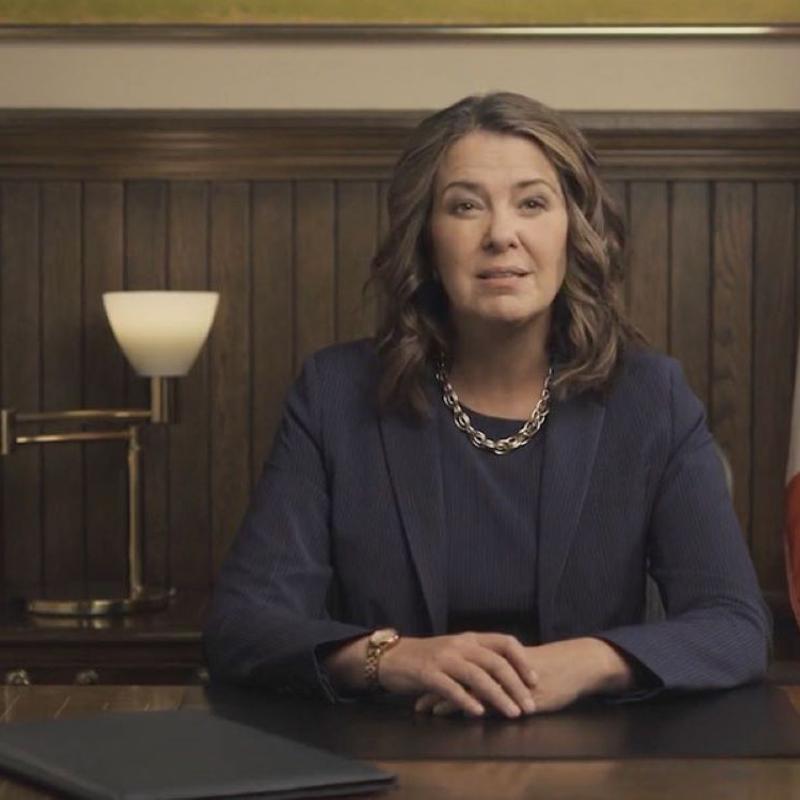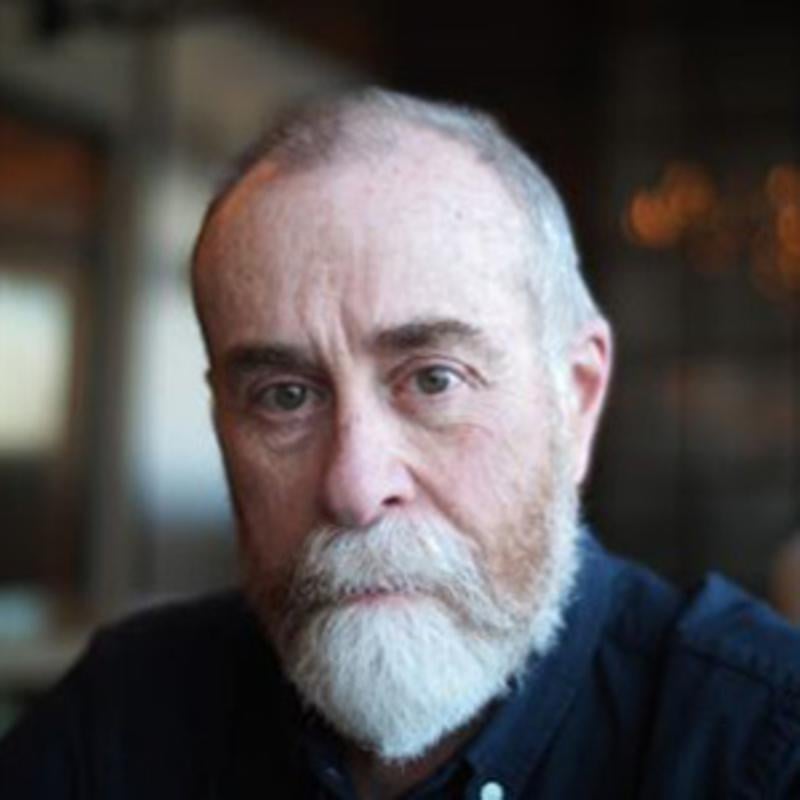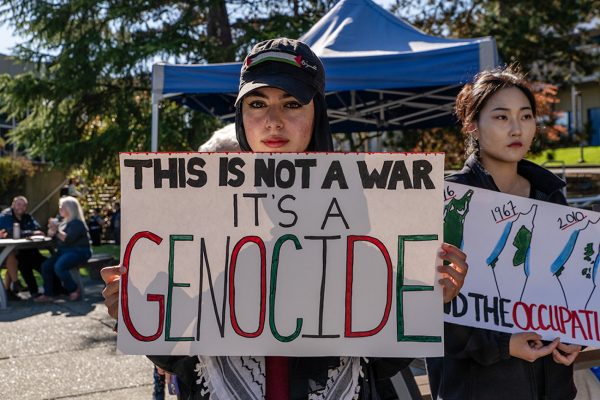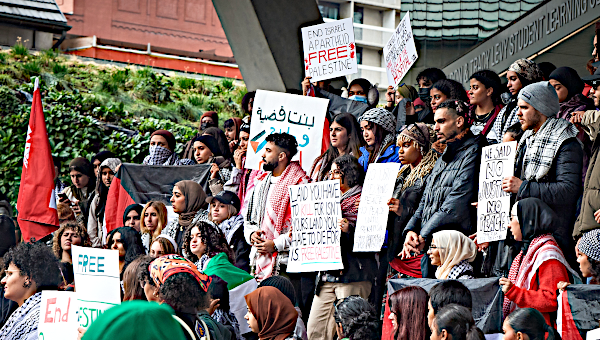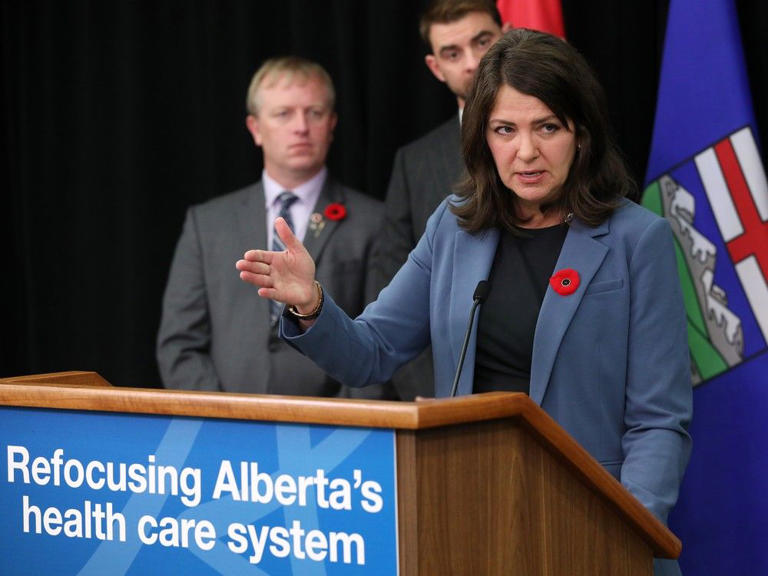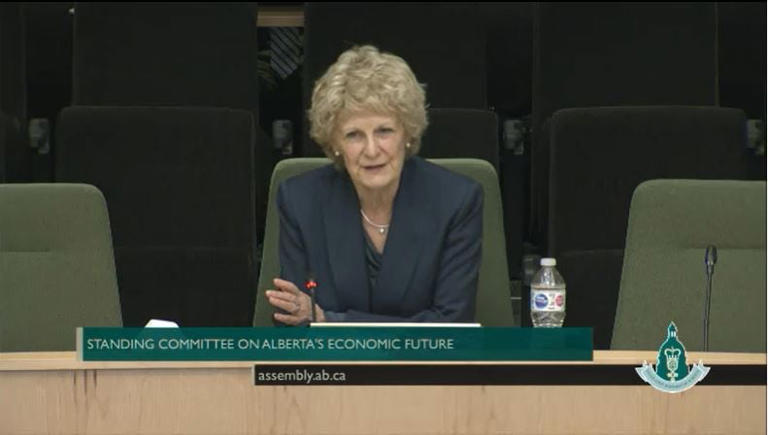
Supporters of Palestine rally on Oct. 24 in Toronto during Israel’s attack on Gaza. (Flickr/Boris Terzic)
In the wake of the brutal Oct. 7 surprise Hamas attack on southern Israel and Israel’s merciless bombing and invasion of Gaza, Palestinian-Canadians have been under attack from their employers, academic institutions, law enforcement and the country’s op-ed pages.
There have been far too many examples over the past month of Palestinian-Canadians facing repercussions simply for speaking out about the root causes of 10/7 and advocating for an end to what Palestinian, Israeli and international human rights organizations agree is an apartheid regime between the Jordan River and Mediterranean Sea.
Any social media posting, rally appearance or expression of solidarity is scrutinized for its most uncharitable interpretation to depict Palestinian-Canadians as an active threat to the safety of Jewish-Canadians.
In Calgary, Palestinian activist Wesam Khaled was charged with a hate crime for leading a chant of From the river to the sea, Palestine will be free, which police described as an “offensive antisemitic comment” without elaboration.
As a condition of his bail, he’s not allowed to attend any pro-Palestinian protests.
This is the most recent and glaring example of the suppression of the right of Palestinian-Canadians to simply exist, but it’s been happening since 10/7 out in the open, with those who are quickest to proclaim their support for free speech without any consequences actively encouraging the censorship of Palestinian perspectives.
On Oct. 8, Air Canada pilot Mostafa Ezzo attended a pro-Palestinian rally in Montreal. These rallies were smeared by politicians across the political spectrum as “pro-Hamas,” as if nobody knew that Israel’s response to 10/7 would be deliberately disproportionate and that there might be cause to express support for Palestinians who were about to be buried in rubble.
Two days later, the X account Stopantisemitism, which mainly targets those who post pro-Palestinian sentiment on social media, posted a photo of Ezzo wearing a Palestinian keffiyeh in his pilot uniform.
“NO JEW would feel safe flying with this antisemite,” the anonymous account wrote, managing to be both anti-Palestinian and antisemitic in the assumption that all Jewish people feel threatened by displays of Palestinian nationalism.
In a second tweet, the account showed three other posts from Ezzo’s Instagram stories:
1. A flyer for the Oct. 8 rally with the caption, “Fuck you Israel, burn in hell.”
2. A photo of him at a rally with a sign reading, “Isr*el, Hitler is proud of you.”
3. A photo of him at another rally with a sign saying, “Keep the world clean,” with an image of someone putting an Israeli flag in a trashcan.
Were these posts inflammatory? Sure. Did they express hatred for the State of Israel? Of course. Did they express hatred for Jewish people? Unless one thinks he was complimenting Israel by comparing it to Hitler, the answer is no.
Toronto Sun columnist Joe “Nightscrawler” Warmington was the first to report that Ezzo had been “grounded” by Air Canada on Oct. 10, citing Ezzo “wearing pro-Palestinian colours while in uniform” and a “shocking number of social posts” — that number being three — “containing profane commentary about Israel.”
Air Canada spokesperson Peter Fitzpatrick, unsurprisingly, condemned Ezzo, saying his “opinions and publications on social media do not represent Air Canada’s views in any way.”
“We firmly denounce violence in all forms,” read an Oct. 10 X post from the airline, although there’s no indication that Ezzo endorsed any sort of violence in any of those posts.
Most disturbingly, Ezzo’s union, which has a legal obligation to represent its members in any grievance filed against an employer, made a statement virtually identical to Air Canada management, calling into question its ability to represent Ezzo fairly.
“We condemn all violence and hatred, and any promotion thereof. It is our firm expectation that all of our members abide by this principle and our professional code of ethics,” reads the statement to the Sun from Air Line Pilots Association (ALPA) Canada.
I reached out to ALPA Canada to inquire whether they had spoken to Ezzo before denouncing him and how they square their denunciation with their duty to fair representation. In response, an unidentified ALPA spokesperson sent the identical statement it sent to the Sun, which answered neither question.
An Oct. 11 post on the Vancouver Is Awesome blog, headlined, “’He belongs in jail’: Air Canada pilot fired after making hateful anti-Israel posts,” compiled replies from Vancouver residents to Air Canada’s post distancing itself from Ezzo, including embedded tweets, such as the one in the article’s headline.
One which was hyperlinked, rather than embedded, was described by writer Elana Shepert as expressing “fear of violence against Jews.”
Here’s what it said: “I’m about to get on an Air Canada flight … I’d hate for us to get flown into a building or something.”
Thus nakedly Islamophobic rhetoric is recast as a legitimate concern about “violence against Jews.”
Two Palestinian journalists have been fired by mainstream news outlets for advocating for Palestinians as Israeli bombs rain down on Gaza.
The expectation that journalists remain neutral, unbiased and objective as their people are being killed is a weapon used to beat racialized journalists over the head, as Pacinthe Mattar wrote much more eloquently in an August 2020 piece in The Walrus.
As of writing, 39 journalists have been killed in Israel, Gaza and Lebanon since 10/7 — 34 Palestinians and one Lebanese killed by Israel and four Israelis killed by Hamas — making the past month the deadliest on record since the Committee to Protect Journalists began tracking data on journalist deaths in 1992. According to Reports without Borders, two more Palestinian journalists have been killed, bringing the total to 41.
On Oct. 25, Al Jazeera reporter Wael al-Dahdouh’s wife, son, daughter and grandson were killed in an Israeli airstrike on the Nuseirat refugee camp, where they had sought shelter after Israeli forces ordered them to evacuate their home in northern Gaza on Oct. 13. Al-Dahdoug learned they were killed as he was reporting from Gaza City, where he stayed behind to cover Israeli airstrikes.
Earlier that day, U.S. Secretary of State Antony Blinken warned Qatari Prime Minister Mohammed bin Abdulrahman bin Jassim al-Thani, whose government funds Al Jazeera, to “turn down the volume” of its Gaza coverage.
Israel is preventing Palestinian journalists from telling their own stories to the world and mainstream Canadian media has proved a willing partner to that end.
Palestinian-Canadian Global News journalist Zahraa Al-Akhrass, who’s based in Milton, Ont., was fired while on maternity leave for social media posts expressing her perspective on Israel’s attack on Gaza, which Israeli-born and educated Holocaust and genocide studies scholar Raz Segal has called a “textbook case of genocide unfolding in front of our eyes.”.
“I was told the problem is with me expressing my beliefs, my opposition [to] Israel’s genocide of my people,” she said in an Oct. 29 Instagram video. “Global was literally asking me to look at these horrific images, this genocide and detach myself from my own identity, my own people. Is this ethical or moral, humane or diverse or inclusive?”
Al-Akhrass was the only Palestinian person in her newsroom, which ought to have been an asset for a news organization with a stated commitment to diversity.
Yet a workplace investigator requested a meeting with her to discuss a lack of “balance” in her posts. She was never told which specific posts were in question, but told to delete all of the ones about Israel and Gaza.
In response, Al-Akhrass sent her colleague an image of a dead Palestinian child, telling her that this is her people’s daily lived reality. Al-Akhrass was then further berated for sharing a “disturbing” image without warning.
“Nobody in my workplace would even acknowledge my pain,” Al-Akhrass said in the Instagram video.
She added that her union told her that, despite the fact that this was her lived reality, Al-Akhrass has no business sharing it with other employees.
Global journalists are part of Unifor M-1. Unifor national representative Liz Marzari told The Orchard in an email that a grievance has been filed on Al-Akhrass’s behalf.
In a statement to Hamilton, Ont., news site inthehammer.com, Global News spokesperson Rishma Govani implicitly accused Al-Akhrass of supporting antisemitic violence.
“Commentary by our employees expressing or amplifying violence or discrimination against any group is not condoned and is a violation of our company policies,” said Govani, who also emphasized that Global journalists are obligated to “remain fair and unbiased.”
In a Nov. 2 video update, Al-Akhrass said that Global offered her money, despite the company’s position that she was fired for cause, meaning she isn’t entitled to severance, under the condition that she refrain from speaking publicly about her firing, which she rejected.
“If a company believed strongly that an employee is inciting violence, why would they pay them money?” she asked. Good question.
So where could she be accused of advocating violence?
In one Oct. 13 tweet, Al-Akhrass said that while many in the West valorize Israeli soldiers, Palestinians regard them as “brutal occupiers who are hungry for our blood,” which simply presents the perspective of most Palestinians. A news organization dedicated to such buzzwords as balance, fairness and diversity might be interested in that perspective.
In another tweet, Al-Akhrass calls the labeling of Hamas as a “terrorist” organization “because they refuse to submit to your occupation,” a “racist narrative.”
Famed Palestinian-American scholar Edward Said — a staunch critic of Palestinian violence against Israeli civilians — shared Al-Akhrass’s view on the way the word terrorist is weaponized to remove any discussion of context from discussions of violence.
He said in 1984 radio interview with historian Studs Terkel:
Terrorism is a word without history because the terrorist just does it for the sheer delight in killing. I mean this is the caricature we’ve built up. Now the result of that is that language has lost its meaning. I mean we cannot distinguish between an enemy with a reason to kill, with a reason to fight, with a reason to exist. He’s just a terrorist.
For this expression of nuance, Said was given the moniker Professor of Terror in a 1989 cover story for the neocon rag Commentary. Some things never change.
CTV News reporter Yara Jamal was fired four days after speaking at an Oct. 22 Palestine solidarity march she co-organized in Halifax.
Documenting Antisemitism, another anonymous X account that appears to exist solely to target people expressing support for Palestine for harassment, picked out this line from her speech: “Jews can continue to exist, the Zionist ideology cannot … the state, no, cannot.”
Despite making a clear distinction between the Jewish ethnicity and faith on the one hand, and the political ideology of Zionism on the other, Jamal was deemed antisemitic and fired.
Again, the Toronto Sun’s Warmington was first to the news, comparing Jamal’s remarks to saying, “Muslims can continue to exist, the Islamic ideology cannot.” A more honest comparison would be if she had said, “Muslims can continue to exist, but Wahabist ideology cannot” — but that would have made Jamal’s remarks sound sensible.
Warmington then quoted B’nai Brith CEO, and two-time failed federal Conservative candidate, Michael Mostyn, who called Zionism an “essential component of the Jewish faith,” just as a Saudi theocrat would call Wahhabism a key component of the Islamic faith.
“When members of the media expose their prejudices and biases publicly, something they should have been trained professionally not to do, they have lost their ability to be perceived as objective disseminators of the news,” Mostyn, a semi-frequent National Post columnist, added.
Journalists, like everyone else, are citizens and have every right to participate in civic life. Had Jamal reported on the rally she organized, there would have been a breach of journalistic ethics, but she didn’t.
By contrast, CityNews crime reporter Fil Martino, who volunteers for the York Regional Police while covering them, has not only never been disciplined for it, but the fact is proudly posted on her CityNews bio.
CTV Atlantic journalists are represented by Unifor M-21. The local didn’t respond to an inquiry about whether they are pursuing a grievance on Jamal’s behalf.
Pro-Israel media watchdog Honest Reporting Canada, an outfit so extreme it encourages journalists to refer to the occupied West Bank by its biblical name, Judea and Samaria, and whose executive director denies the extensively documented existence of extremist Jewish settlers, boasted of having gotten al-Akhrass and Jamal fired.
“Let this be a reminder to Canada’s journalists, should you engage in antisemitism and partisan anti-Israel advocacy, whether on social media or in your personal lives, we will hold you accountable,” wrote the group’s executive director, Mike Fegelman.
Meanwhile, in Canada’s op-ed pages, Martin Regg Cohn, Andrew Coyne, Robyn Urback, Rosie DiManno, Barbara Kay, Konrad Yakabuski and their ideological ilk are free to to regurgitate whatever Israeli government talking points they like, with rare rejoinder.
Nora Fathalipour, a Toronto-area lawyer, is offering pro bono legal services to those who have been reprimanded or disciplined for supporting Palestine.
Fathalipour told The Orchard that she’s received hundreds of calls from Canada and the United States since she announced her intention to provide her services on LinkedIn two weeks ago.
“I think I reached my capacity after two days,” Fathalipour said, adding that she’s connecting those she cannot help with lawyers who can.
Those who have approached her for assistance, Fathalipour noted, are drawn from “all across every industry you can imagine.”
“I was surprised to find that in industries that don’t have anything to do with politics, or are even very public facing, people have been losing their jobs — things like the food industry, hairdressing and cultural institutions,” she said.
The legal profession hasn’t been immune from this wave of repression, with particularly disturbing implications, given the key role lawyers play in defending citizens from governmental and corporate overreach.
Fathalipour was one of nearly 700 lawyers who signed an open letter addressing a “growing chorus of statements from lawyers, law firms and law schools that are conflating expressions of solidarity with Palestinians and criticism of the State of Israel as antisemitic and conduct unworthy of learning or practicing law.”
These statements have included vows to blacklist anyone who expresses support for Palestine, attempts to get pro-Palestine lawyers fired from their firms, and advocacy for the expulsion of law students who express positions they disagree with.
“No Canadian should ever be discriminated against in the workplace because of his or her political beliefs or political activities,” employment lawyers Howard Levitt and Kathryn Marshall wrote in the Financial Post in January.
That was in response to the Ontario College of Psychologists ordering crackpot psychologist and right-wing influencer Jordan Peterson to take a mandatory social media training course or face suspension of his (long-unused) psychologist license.
But, when it comes to Israel, suddenly employers don’t just have a right, but a moral obligation, to discriminate against employees based on their political views.
“No-one has the right to ‘free speech’ in workplace political discourse and, if it is going to alienate any worker, it should not be permitted by the employer,” Levitt wrote in an Oct. 20 Financial Post article.
A week later, Levitt advocated workers who criticize Israel on social media or attend a pro-Palestine rally, both which he disingenuously frames as supporting Hamas, “be terminated for cause.”
If the worker sues for wrongful dismissal, Levitt promised, “I will personally represent the employer pro bono.”
Fathalipour said she would agree with Levitt that the two cases are different.
Peterson’s social media ravings, which include insinuating a critic of overpopulation should commit suicide, deliberately misgendering trans people and insisting overweight people are “not beautiful,” are, Fathalipour said, at the very least arguable instances of professional misconduct.
“The cases that I’ve been seeing haven’t been about threats or unprofessional speech, or anything like that,” she said.
“It really has been people just talking about what’s going on in Palestine. And expressing their emotions, about how distraught they are seeing what’s happening.”
This piece first appeared in The Orchard.
